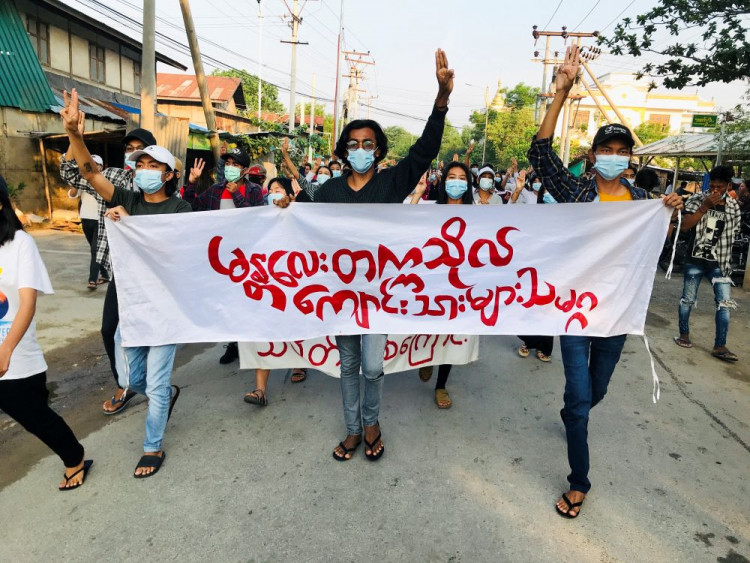In what would be the country's first judicial executions since 1990, the junta announced on June 3 that it would execute a former lawmaker from Aung San Suu Kyi's party and a prominent democracy campaigner, both convicted of terrorism.
Four people sentenced to death, including former MP Phyo Zeya Thaw and democracy activist Ko Jimmy, "who were sentenced to death will be hanged according to prison procedures" junta spokesman Zaw Min Tun told AFP at the time.
In such cases, imposing a prison or death sentence may constitute crimes against humanity or war crimes. Persecution is a crime against humanity because it is a severe violation of a person's fundamental rights under international law when committed on discriminatory grounds, such as political affiliation.
When a person is detained without due process of law, including in violation of fundamental rules of international law, imprisonment is committed as a crime against humanity. It is also a war crime to impose sentences and carry out executions without a judgment from a regularly constituted court that provides all judicial guarantees that are widely acknowledged as essential. National laws or procedures used to support a conviction and sentence must not be in violation of international law.
The head of the UN's Independent Investigative Mechanism for Myanmar, Nicholas Koumjian, said he was closely following the case.
"The available information strongly suggests that under international law, fundamental rights of the convicted persons were blatantly violated in these proceedings,"
"Imposing a death sentence, or even a period of detention, on the basis of proceedings that do not satisfy the basic requirements of a fair trial may constitute one or more crimes against humanity or war crimes," he then added.
The junta sentenced dozens of anti-coup activists to death after seizing power last year as part of its crackdown on dissent, but Myanmar has not carried out an execution in decades.
According to Koumjian, in order for a trial to be considered fair, it must be held in public to the greatest extent possible.
"Exceptions based on national security or other considerations must be limited to the extent that they are strictly justified," he said.
However, in these instances "it appears that there were no public proceedings nor are the judgments publicly available".
This raised doubts as to whether the tribunal was impartial and independent, he continued.
The UN human rights council established the Myanmar mechanism in 2018.
Its mission is to collect and document evidence of international crimes and human rights violations in the former Burma in order to facilitate criminal proceedings.





